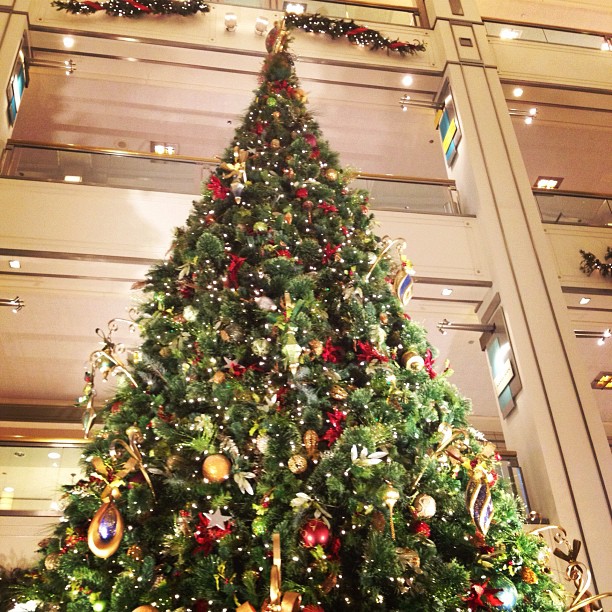

It's that time of year again. Under the guise of tolerance and political correctness, "holiday trees" are sprouting up everywhere. Christian leaders have objected to the transformation of a religious custom into a universal and generic winter practice; for example, Chicago's Cardinal George stated last year that it would be "disquieting if ... Christian symbols are to be systematically stripped of any reference to their origin." Talking heads have denounced the trees as part of the so-called "war on Christmas." A few weeks ago, Fox's Bill O'Reilly attacked Rhode Island Gov. Lincoln Chafee's decision to have a "holiday tree" in the State House, saying, "So governor, a holiday tree? A holiday tree, really, Governor? What's the tradition of a holiday tree? Where does the holiday tree come from?"
As a Jew, I also object to this phenomenon, albeit for different reasons.
The very essence of Hanukkah is not that a day's worth of oil kept burning for eight; rather, it is the survival and endurance of the Jewish tradition, against all odds. When the Greek King Antiochus IV ascended to power in ancient Judea, he reconstituted Jerusalem as a Greek city and wasted no time in outlawing all manner of Jewish observance. His armies raided the Holy Temple and placed Zeus on the altar, an ultimate affront. In resisting the much more powerful Greek army, Judah Maccabee and his forces refused to let Judaism be annihilated from the face of the earth. The Maccabees triumphed and with them, so did the Jewish people.
That brings us to the United States, where there are an estimated 6.5 million Jews, many of whose ancestors fled persecution to come to a place where they could freely practice their tradition. Much in the same way that Hellenism wrought its course in ancient Judea, the allure of assimilation has been a powerful force confronting Jews in America. Having a menorah in one's window this time of year marks one as a Jew, as a minority in a majority-Christian society. A Christmas tree, on the other hand, designates membership in the mainstream. For Jewish families, putting up a Christmas tree, sometimes termed a "Hanukkah Bush," can be akin to saying, "We're just like every other 'normal' [read: Christian] American family with 2.1 children, a dog and a mortgage."
This is why I find the "holiday tree" problematic. It is one thing to wish someone a "happy holidays" in reference to the multitude of secular and religious winter holidays. However, it is quite another to declare that an evergreen tree, which has been a symbol of Christmas -- the holiday commemorating the birth of Jesus Christ -- since the 16th century, is a universal holiday symbol. Just as I would never refer to a Hanukkah menorah as a "festive candelabra," assigning a broader, secular significance to an object from my religious tradition, calling a Christmas tree a "holiday tree" perhaps unwittingly makes it belong to the holiday season rather than the Christian faith.
Given that the majority of Americans are Christian, presenting one of the majority's religious customs as part of everyone's holiday celebration comes across as patronizing and didactic. Hearing the term "holiday tree" in reference to everything from lighting ceremonies to recycling programs makes me feel as if I am being told, "Don't be offended. You're not being excluded. Don't you have one too?"
Hanukkah celebrates Jewish continuity. The Maccabees fought the Greeks who wanted the Jewish people to assimilate and their tradition to vanish into oblivion. Yet 23 centuries later and a world away from the Maccabees, Judaism continues to thrive. The "holiday tree" moniker suggests that all Americans find meaning in an evergreen tree. It therefore encroaches on what makes America such a special place: the fact that it is a patchwork of different cultures and traditions, each with customs to observe and share.
This December, let us celebrate our diversity and call a "spade" a "spade," and a Christmas tree what it is: a Christmas tree.